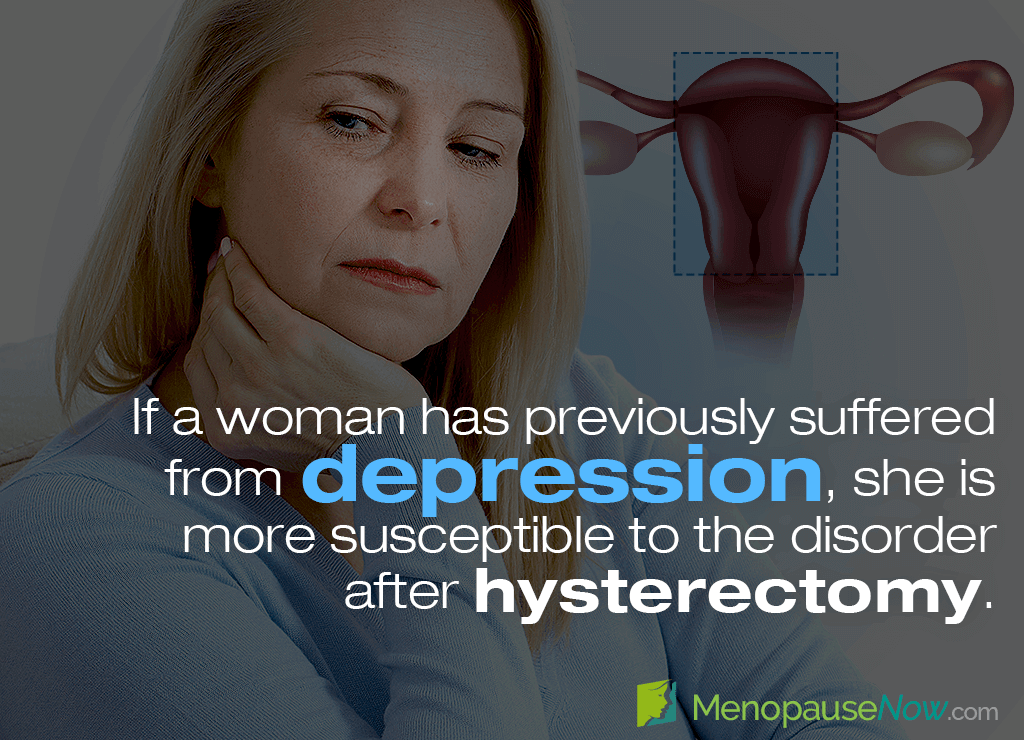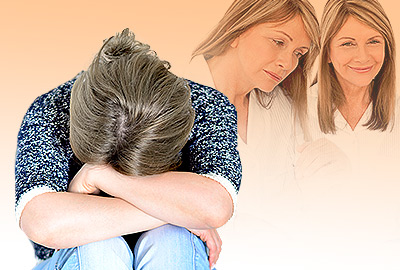While hysterectomies are fairly common and potentially lifesaving procedures, some menopausal women develop post-hysterectomy depression. Depression after hysterectomy can occur for a number of reasons, and no matter the reason, it can negatively impact a woman's quality of life.
Keep reading to find out more about depression after hysterectomy so that you can take better hold of your mental health in years to come.
Reasons for Depression after Hysterectomy
The reasons for depression are numerous, and some are listed below:
Sudden drop in estrogen levels
Estrogen's main function is to regulate the reproductive cycle, but it also has an effect on the brain's neurotransmitters that are responsible for mood, such as serotonin. If there is a drastic drop in estrogen levels, a woman's mood may dip, and she may experience depressive states and sadness after hysterectomy.
Previous psychological state
If a woman has previously suffered from depression or other psychological conditions, she is more likely to be susceptible to depression after hysterectomy. This could be due to the fact that her body is responding to the hormonal imbalances, or that she is more likely to be focusing on the perceived negative aspects of the operation.
No preparation or say in the operation
Women who were ill-informed about the procedure or who had little or no say in deciding to operate are far more likely to develop hysterectomy depression. Furthermore, hysterectomies themselves are often performed because of serious or life-threatening conditions, and this can contribute to feelings of lack of control and frailty.
Loss of fertility
Women may also suffer from depression after hysterectomy because of the perceived undermining of their femininity. The loss of the uterus is the official end of fertility. Some women may feel that this affects their self-concept of what it means to be a woman, leading to depressed moods and sadness.
Preventing Depression after Hysterectomy
Prevention is not always possible, but there are certain measures you can take in order to make yourself less prone to post-hysterectomy depression.
Have a support network
Having close friends and family to lean on during this transformative time may help you feel stronger and give you more assurance. They may also provide you with ideas you may not have previously considered for a full recuperation.
Be proactive
Before entering the surgery, put aside quality alone time in order to process and come to terms with the loss of your reproductivity. If you feel as if the hysterectomy still may not be the best option for you, get a second opinion from another doctor to discuss other routes of treatment.
Partake in therapy beforehand
As aforementioned, a woman's psychological state after the surgery is largely dependent upon her past history of depression. Therefore, it would be beneficial for her to resolve any lingering problems before surgery.
Balance hormones
You will still experience the hormonal drop. However, having a lifestyle that promotes hormonal balance, such as a diet rich in phytoestrogenic foods and healthy habits, may help lessen the impact of the hormonal deficit in your body post-surgery.
Treating Depression after Hysterectomy
Keep in mind that aftercare is just as important, and this goes beyond physical health. Women who seek post-surgical counseling or psychotherapy are less likely to suffer from conflicting feelings and post-hysterectomy depression.
As aforementioned, hysterectomy is an invasive procedure that should not be taken lightly. If menopausal symptoms are negatively affecting your quality of life, consider more natural and effective methods of treating the hormonal imbalance at fault, such as through these depression treatments.
If your doctor encourages a hysterectomy, make sure to have all uncertainties resolved before the surgery. Without a doubt, early intervention can be the difference between the depression developing into a clinical condition or disappearing altogether.
Sources
- Bahri, N. et al. (2016). Depression Following Hysterectomy and the Influencing Factors. Iranian Red Crescent Medical Journal, 18(1), e30493. doi: 10.5812/ircmj.30493
- Farquhar, C.M. et al. (2006). A prospective study of 3 years of outcomes after hysterectomy with and without oophorectomy. American Journal of Obstetrics & Gynecology, 194(3), 711-717. doi: 10.1016/j.ajog.2005.08.066
- The Hysterectomy Association. (2015). Depression after hysterectomy. Retrieved February 13, 2019, from https://www.hysterectomy-association.org.uk/emotional-health/depression-after-hysterectomy/
- Johns Hopkins Medicine. (n.d.). Hysterectomy. Retrieved February 13, 2019, from https://www.hopkinsmedicine.org/healthlibrary/test_procedures/gynecology/hysterectomy_procedure_92,P07777
- Judith, H. (2003). Psychological Problems of Women Who Had Undergone Hysterectomy: A Pilot Study. Retrieved February 13, 2019, from http://www.cds.ac.in/krpcds/report/helena.pdf
- NHS. (2016). Overview: Hysterectomy. Retrieved February 13, 2019, from https://www.nhs.uk/conditions/hysterectomy/




